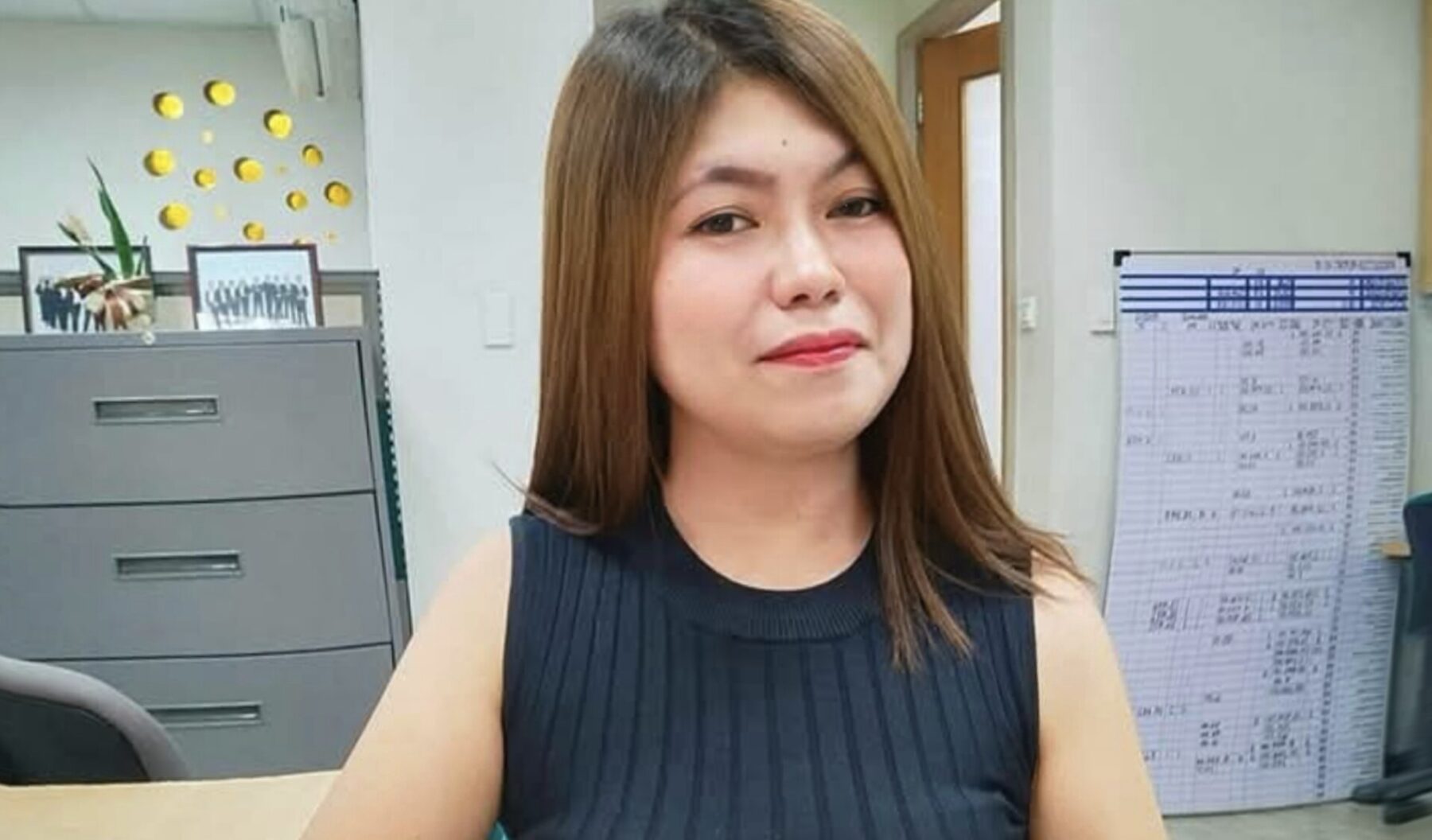Guest Voice: Still fighting and hoping in life with MG
Living with myasthenia gravis is exhausting, but I'm still here
Written by |

Devi Rose Cabañez holds on to hope for better care for myasthenia gravis patients like her. (Courtesy of Devi Rose Cabañez)
My journey with myasthenia gravis (MG) began when I was only 13 years old. At first, I experienced weakness in my arms and legs, which I thought was just normal tiredness from being active in school and playing a lot. I ignored it, but as the months passed, more symptoms appeared. My eyelids began to droop, and I started having double vision. I couldn’t understand what was happening to my body, and as a teenager, it was frightening not to know why I was slowly losing strength.
I sought medical help, but for years, no one could give me answers. My symptoms worsened until I could no longer walk, swallow, chew, or even speak. By the age of 17, I was completely bedridden and had to stop going to school. Eventually, even my breathing became difficult. I was rushed to the hospital in crisis, unable to breathe on my own. It was only then that I was finally diagnosed with MG.
True love and resilience
That moment was both terrifying and relieving: terrifying because I realized how serious my condition was, but relieving because I finally had a name for what I was going through.
The doctors gave me Mestinon (pyridostigmine bromide), and the effect was immediate. For the first time, I had some physical relief, and my condition was confirmed. A year later, I was referred to a neurologist — something that wasn’t available in my area before then.

Devi Rose Cabañez needed to be intubated during her second myasthenic crisis, which occurred in October 2019. (Courtesy of Devi Rose Cabañez)
I’ve been under a neurologist’s care since 2014. In 2017, I underwent a thymectomy, but unfortunately, I haven’t reached remission. In 2019, I faced another myasthenic crisis and had to be intubated, which was one of the scariest moments of my life.
To this day, I remain on medication. I take 60 mg of Mestinon seven times a day, Imuran (azathioprine) three times a day, and 5 mg of prednisone once a day. These medicines help me manage my symptoms, but they are also expensive, and it’s not easy to sustain my treatment regimen.
Living with MG has been incredibly difficult, not only because of the illness itself, but also because of the financial struggles that come with it. My mother passed away when I was 9, and my father later remarried, but we were not well-off. Many times, I haven’t been able to afford my medications.
Here in the Philippines, where I live, treatment for MG is hard to access, and patients like me often have to struggle just to buy the medicine we need to survive. There have been days when I cried, wondering how long I could keep fighting, but my faith and the love of my family kept me going.
My grandparents patiently cared for me when I couldn’t care for myself. My grandmother had polio as a child, so she couldn’t walk. She was also blind from untreated cataracts. Imagine a bedridden MG patient being cared for by someone who couldn’t walk or see. She would feed me by feeling around to find my mouth while my grandfather assisted her. Meanwhile, my father worked hard to get my medicines and could only come home late at night.
It wasn’t an easy life, but their sacrifices showed me what true love and resilience mean.

Singing provides Devi Rose Cabañez with a temporary reprieve from myasthenia gravis. In March 2025, she performed at a restaurant in Polangui, Albay, Philippines. (Courtesy of Devi Rose Cabañez)
Despite all of this, I held on to my passion for singing. Since childhood, music has been my joy and my escape. When I was bedridden for four years, I had to stop, but after taking Mestinon, I was able to sing again. I may not hit powerful notes anymore, but I can still sing.
From ages 19 to 22, I joined singing contests, and today, I continue to perform at events and in restobars. Singing gives me strength, confidence, and a sense of normalcy that MG tries to take away.
Living with MG is exhausting, but I’m still here — still fighting, still singing, and still hoping. My greatest wish is that one day, there will be a cure for MG, or at least better access to treatments that will give patients like me a chance at remission and a better quality of life.
My story is not just about illness, but about survival, family, and the courage to keep moving forward despite all the challenges.
To submit your own Guest Voice for publication on Myasthenia Gravis News, please email your idea to our columns manager at [email protected] with the following included in the subject line: “Guest Voice: Myasthenia Gravis News.”
Note: Myasthenia Gravis News is strictly a news and information website about the disease. It does not provide medical advice, diagnosis, or treatment. This content is not intended to be a substitute for professional medical advice, diagnosis, or treatment. Always seek the advice of your physician or other qualified health provider with any questions you may have regarding a medical condition. Never disregard professional medical advice or delay in seeking it because of something you have read on this website. The opinions expressed in this column are not those of Myasthenia Gravis News or its parent company, Bionews, and are intended to spark discussion about issues pertaining to myasthenia gravis.




Michael Morris
Powerful story. I have MG but was diagnosed in three months luck I guess I did however recently go undiagnosed for lack of magnesium. When I cked in the I was so weak I couldn’t go from the Ems stretcher to a wheelchair to check in. A half hour after taking a battery of test the md came in and told me I had almost no magnesium I told him couldn’t take any because of MG but he said I had to and they would infuse slowly and test my blood every 3-4 hours. Two day later I was home and back to normal. I would ask every MG patient to have their magnesium levels cked with a simple blood test. It could help diagnose so many symptoms
June Robertson
I was 17, very shy, straight out of a Methodist boarding school and in a new city for university(1962) when I developed generalised MG. On three occasions my physician would ask me to strip down to knIckers only and run on the spot "to test my muscles". iI was so so embarrassed but in those days the doctor was God and you never spoke back. He would not get away with it now. He lived to 90 and became the university medical centre doctor. I wonder what other havoc he caused.
Mary Rose Blanes
I am so proud of you bhe. I can feel your pain and sufferings but you indured it all.. This is true, sharing your experiences will open a chance and encouragement to all who suffer from the same illness and also it will give awareness to people to understand your situation and others who has it. Keep on fighting bhe and continue to inspire people! Praying for more support in the future. lavyah!